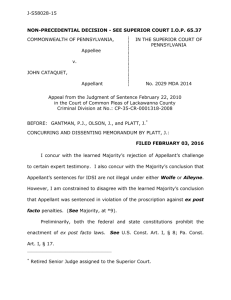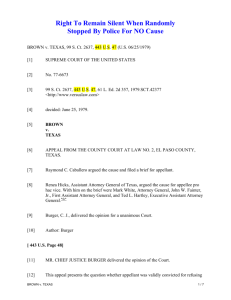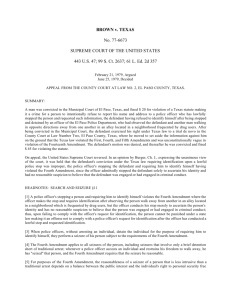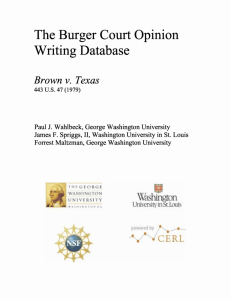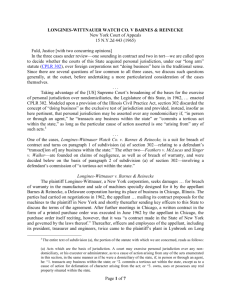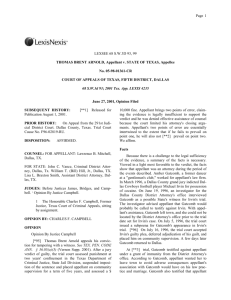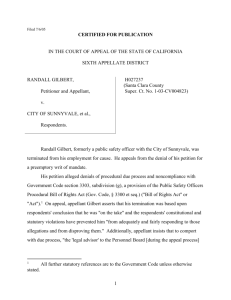Brown v. Texas - Freedom School
advertisement
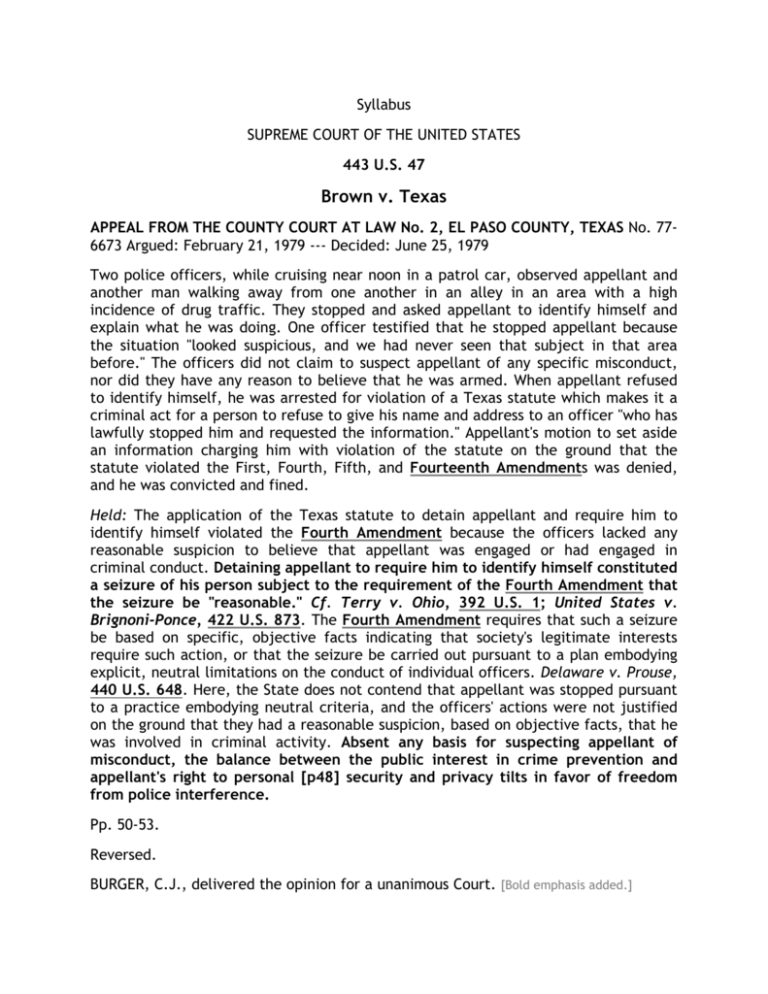
Syllabus SUPREME COURT OF THE UNITED STATES 443 U.S. 47 Brown v. Texas APPEAL FROM THE COUNTY COURT AT LAW No. 2, EL PASO COUNTY, TEXAS No. 776673 Argued: February 21, 1979 --- Decided: June 25, 1979 Two police officers, while cruising near noon in a patrol car, observed appellant and another man walking away from one another in an alley in an area with a high incidence of drug traffic. They stopped and asked appellant to identify himself and explain what he was doing. One officer testified that he stopped appellant because the situation "looked suspicious, and we had never seen that subject in that area before." The officers did not claim to suspect appellant of any specific misconduct, nor did they have any reason to believe that he was armed. When appellant refused to identify himself, he was arrested for violation of a Texas statute which makes it a criminal act for a person to refuse to give his name and address to an officer "who has lawfully stopped him and requested the information." Appellant's motion to set aside an information charging him with violation of the statute on the ground that the statute violated the First, Fourth, Fifth, and Fourteenth Amendments was denied, and he was convicted and fined. Held: The application of the Texas statute to detain appellant and require him to identify himself violated the Fourth Amendment because the officers lacked any reasonable suspicion to believe that appellant was engaged or had engaged in criminal conduct. Detaining appellant to require him to identify himself constituted a seizure of his person subject to the requirement of the Fourth Amendment that the seizure be "reasonable." Cf. Terry v. Ohio, 392 U.S. 1; United States v. Brignoni-Ponce, 422 U.S. 873. The Fourth Amendment requires that such a seizure be based on specific, objective facts indicating that society's legitimate interests require such action, or that the seizure be carried out pursuant to a plan embodying explicit, neutral limitations on the conduct of individual officers. Delaware v. Prouse, 440 U.S. 648. Here, the State does not contend that appellant was stopped pursuant to a practice embodying neutral criteria, and the officers' actions were not justified on the ground that they had a reasonable suspicion, based on objective facts, that he was involved in criminal activity. Absent any basis for suspecting appellant of misconduct, the balance between the public interest in crime prevention and appellant's right to personal [p48] security and privacy tilts in favor of freedom from police interference. Pp. 50-53. Reversed. BURGER, C.J., delivered the opinion for a unanimous Court. [Bold emphasis added.]
![[J-56A&B-2014][MO – Eakin, J.] IN THE SUPREME COURT OF](http://s3.studylib.net/store/data/008438149_1-ddd67f54580e54c004e3a347786df2e1-300x300.png)




